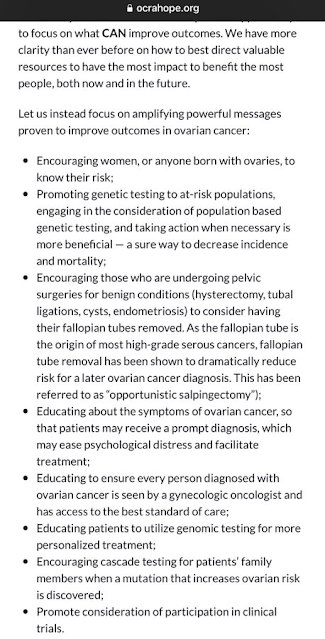We hope you can join us on Wednesday, September 13, 2023 at 8pm ET for our chat about raising awareness of gynecologic cancers titled How do we #MoveTheMessage ? We will be joined by Gail O'Hara, Director of Corporate and Foundation Relations for the Foundation for Women's Cancer to share information about the types of gyn cancers - ovarian, endometrial, vulvar, cervical and vaginal. We'll also have guests from Cervivor, ECANA, and Powell-Drescher Ovarian Cancer Research Foundation.
T1: What are some of the things you, or your organization, do to raise awareness of GYN cancers? Are there things you've tried in expanding your reach to underserved communities?
T2: What are some of the key points to share when raising awareness about #CervicalCancer? What do you wish others knew?
T3: What are some of the key points to share when raising awareness about #UterineCancer and #EndometrialCancer? What do you wish others knew?
T4: What are some of the key points to share when raising awareness about #OvarianCancer? What do you wish others knew?
T5: Vaginal, vulvar, and several other gyn cancer types are rare. With fewer advocates and organizations to speak about these cancers, how can we educate more people? What is most important to know?
There is another reason why we hope you will join us this month. GYNcancer community will be celebrating our tenth anniversary as a community and chat on X (/Twitter) .
#GYNCSM Community Question 2: How are you feeling about the cancer community on this platform now? Do you have back-up plans if/when this platform is no longer a good fit for you?
#GYNCSM Community Question 3: What chat topics have you found most helpful? What topics would you like #gyncsm to cover in future chats?








